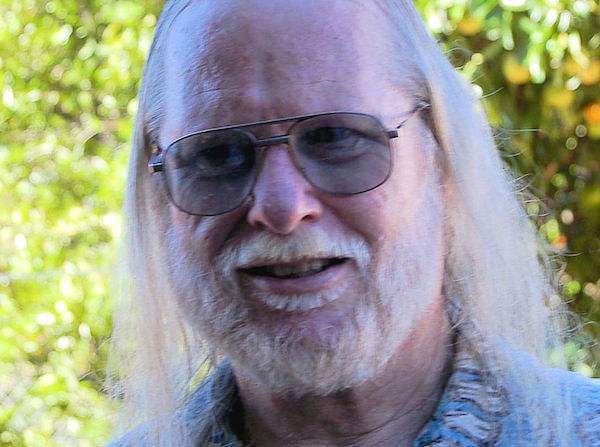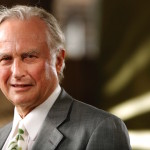From Faith to Atheism: An Interview with Doug Shaver
by Brandon Vogt
Filed under Atheism, Interviews
We've posted several recent interviews with Catholics like Vatican astronomer Brother Guy Consolmagno, SJ, atheist convert and professor Dr. Holly Ordway, and theologian and convert Dr. Stephen Bullivant.
Although we have featured interviews with atheists in the past, such as with Dr. Michael Ruse and Chana Messinger, many commenters wondered when we would see more atheist interviews. Therefore, I issued a (still-standing) invitation for any atheists interested in being interviewed.
The first to heed that invitation was Doug Shaver, a frequent and insightful commenter here at Strange Notions. Doug has an eclectic professional and intellectual background. He was born a few months after the end of World War II to parents who were theistic but religiously uncommitted. Initially a religious skeptic, he was converted to evangelical Protestantism at age 12 and two years later became a Oneness Pentecostal. Over the next decade, his personal research into the origins of religion in general and Christianity in particular led him first into liberal Protestantism and, by his mid-20s, to atheism.
Meanwhile, Doug acquired extensive training in electronics during 6 years of service in the U.S. Navy. After his military service he earned a BA in sociology from the University of North Florida and began a career in newspaper journalism. He has also at various times been a social worker and worked in various trades including construction and auto repair. He is widely read in the history of science and technology, and in 2012 graduated from California State University, San Bernardino, with a BA in philosophy. He writes regularly at DougShaver.net.
Doug agreed to chat with me about his religious experiences including his journey from faith to unbelief.
BRANDON VOGT: You were a skeptic from a pretty young age, but then found your way into a self-described "fundamentalist" church and then a Pentecostal community. What was your religious experience like growing up?
DOUG SHAVER: Practically nonexistent. Religion was almost never discussed in our home, but that was due more to indifference than any hostility. Neither of my parents was an atheist, but they had little interest in any organized religion, and none at all in trying to instill whatever beliefs they had in their children. I never saw the inside of a church until my conversion.
What scant knowledge I managed to acquire about religion was from incidental references to it of the sort that one cannot avoid hearing in everyday life. From such references, I got the idea that there were several varieties of it, that in most of the world's countries one of those varieties was dominant over the others, and that they were generally based on various beliefs about a supernatural being known as God. I knew that I knew that in the United States, that dominant religion was called Christianity, its founder was a man called Jesus Christ, and the Christmas holiday had some connection with stories about his birth. I was unaware of any connection between Easter and Christianity. I noticed that calendars often had notations about things like Passover, Lent, Yom Kippur, and the like. I had no idea what those names meant, and for some reason it never occurred to me to ask anyone.
I came to understand, in a vague sort of way, that many people believed that praying to this God would sometimes make things happen that otherwise would not happen. It became apparent to me, probably by the time I was 8 or 9, that this was a kind of superstition, not relevantly different from believing that certain things would bring good or bad luck. And, if belief in this God was, as seemed apparent to me, what religion was all about, then religion was just another superstition. It seemed to be, in some sense, more respectable than other superstitions. I could see no reason why it should be, but in various ways I learned very quickly that any expression of skepticism about religion was likely to get a very negative response.
BRANDON VOGT: What were some of the strongest reasons you were drawn to Christianity?
DOUG SHAVER: Initially, it was almost purely a case of taking Pascal's wager. I was told that if I didn't accept Christ as my savior, I was destined to burn in hell forever. I could not help thinking, "What if it's true?" I was 12 years old and, for various reasons including a very dysfunctional family, I was an emotional basket case. I figured I had better at least act as if I believed, following Pascal's advice even though it would be years before I ever heard of Pascal or his wager. And it worked. Within a matter of days, or a few weeks at most, I was no longer just acting. I was believing everything I said.
After that transition, was sustained me was a conviction that it all really did make good sense. It just seemed obvious that because we were the creation of a perfect God, doing what he wanted, living as he wanted us to live, was not only the right thing to do but also the smart thing to do. It was the way to be happy, and nothing about my life outside the church was making me happy.
BRANDON VOGT: At age 25 you surprisingly realized, "I don't believe in God any more." Was that a sudden conviction or something that grew over time? What led you to that conclusion?
DOUG SHAVER: I'm sure it must have been growing for some time. My feeling at the time was not so much of making a big discovery as of completing the transition from asleep to awake.
What led me to it was the steady erosion over the years of the reasons I thought I had for believing in God. I don't mean specifically theistic arguments in every case, but more generally arguments for the existence of some kind of transcendental reality, for some force in the universe that was beyond empirical confirmation, or at least any direct confirmation that was not merely an appeal to one's gut feelings.
BRANDON VOGT: Atheists and Catholics alike will agree there are many bad arguments offered for God. But what do you consider to be the strongest argument for God, and why do you think it fails?
DOUG SHAVER: Keeping in mind that we're not talking specifically about the Christian God, I think there are two bases for a reasonable faith.
One is that belief in a god of some kind does seem to be almost a human universal. I am told that a few counterexamples have been documented in the anthropological literature, but even if they do exist, such outliers don't disprove the generality. Evolution does seem to have hard-wired our brains, if not for religion, then for some ways of thinking that normally produce religious belief. The hypothesis that this is because there is something true about religious belief is hard to resist, and I have a hard time blaming anyone who doesn't resist it.
I think it fails on grounds of parsimony, in that it needs to assume something special about religion. Those ways of thinking that support religion are demonstrably unreliable in many non-religious contexts, but they nevertheless are amendable to cogent evolutionary explanations. Our brains were designed by evolution to facilitate our survival by guiding our actions in an environment very different from the one in which most of us now live. So long as our ancestors took the actions necessary to stay alive, it didn't matter whether the beliefs on which they based those actions were true. This is not to argue, as Plantinga tries to argue, that the difference between true beliefs and false beliefs was always irrelevant to our survival. False beliefs would have been fatal in a great many situations. But not all situations, and in those other situations, religious beliefs could well have been advantageous even if untrue.
The other is the fine-tuning argument. There are all those universal constants that all had to be exactly what they are if we were to exist, and there is no apparent reason for them to be exactly what they are. But we do exist, and so there must have been some reason. Though this sounds superficially like just another God-of-the-gaps argument, it seems sufficiently different from the others to merit some attention. These constants are the bedrock of all other scientific explanations, and the expectation that they will be explained someday, when we have no clue as to where the explanations might come from, is not obviously any less an act of faith than that of the average theist.
As a defense of theism, I think the best that can be said is that it leaves theism on equal footing with atheism. For me, the only sensible construal of believing on faith is the acceptance of an assumption, or postulate, or axiom, or whatever you call a proposition believed without proof. We all, not excluding any atheists, believe some propositions on that basis. On that particular point, anyone who defends their theism strictly on that basis will get no argument from me.
But some axioms are more defensible than others, and I have a problem with any axiom that seems to be no more than a disguised way of saying, "We don't know." The fine-tuning argument depends for its force on the current ignorance of the scientific community regarding the origins of those constants. Because of that ignorance, those values seem to have been assigned at random: any of them, for all we now know, could have been anything else. But there is the rub: for all we now know. We most certainly do not know that any of them could have been any different. We certainly do not know that there was anything random about their acquiring the values they have. For all we do know, their apparent randomness is a measure of nothing more than the current state of our scientific ignorance.
We skeptics are sometimes accused of thinking that science has all the answers. This skeptic thinks nothing of the sort. I know very well how countless are the questions that science has not come anywhere near answering. But if it is silly to think science has all the answers, it is no less silly to think that it now has all the answers that it will ever get. The fine-tuning argument, it seems to me, is saying in effect: These are questions that science ought to have answered by now, and since it has not answered them yet, we can be confident that it never will answer them. I can see no rationale for thinking that these questions about the fundamental constants are of that sort.
BRANDON VOGT: In your experience, what's the biggest misconception Catholics have about atheists?
DOUG SHAVER: I am not aware of any misconceptions that are unique to Catholics. So far as I can tell, they are distributed pretty equally among believers of all persuasions.
I'm not sure I can pick one out as uniquely prevalent, or "biggest" in any other sense, but a good candidate would be the claim that there is something inherently nihilistic about atheism, that without God, we just have no reason to care about anything. Among those believers who acknowledge that some of us, nevertheless, do care about certain important things, I usually see one of two responses. One is along the lines of: "Yes, I admit that you do care, but you're not justified in caring. You can give me no good reason for thinking that what you care about really is important." The other is: "Yes, you care, but you learned your caring from us theists. You were born and raised in a believing society, and that is the only reason you care about anything."
On both points, obviously, I beg to differ.
Related Posts
Note: Our goal is to cultivate serious and respectful dialogue. While it's OK to disagree—even encouraged!—any snarky, offensive, or off-topic comments will be deleted. Before commenting please read the Commenting Rules and Tips. If you're having trouble commenting, read the Commenting Instructions.













